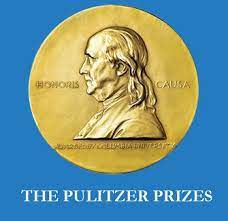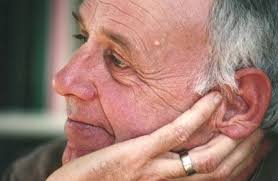
Hello, Ruby Tuesday. Special, apparently, to Mick Jagger, but for me, just another day of the week to wonder, whine, and wax ineloquent about this wonderful world we share through no choice of our own. (Please, though. Don’t blame Mom and Dad. They were young and restless, too, at one time!)
- Is it me, or do award shows like the Oscars begin to verge on self-parody more and more?
- March Madness is here! Unfortunately for NCAA basketball, the “madness” is more about corruption and greed than about zone defense and buzzer beaters. Bracket that.
- I’ve loved getting to know Marie Howe’s poetry in recent weeks, but looking at her author photo makes me worry about the weight of her hair. What some of the receding-hairline crowd would do for some of that profusion!
- Since writing about listening at poetry readings on these pages, I have heard from more and more people (even poets!) admitting that they often don’t fully grasp what’s being read to them, either. “Listen my children, and you shall hear…,” is all I can say. Well, actually, I can say a lot more than that, as you can see…
- Ever notice how some poetry terms refuse to stick? Dactyls and litotes and haibuns (oh, my!). Like Teflon, I fear. Sliding off the cerebellum every time.
- Best poet’s name of all time? I nominate William Wordsworth.
- Did you know that Ernest Hemingway’s first literary efforts were in the field of poetry? It didn’t go so well, but credit where credit’s due: some men know when to retreat.
- In reading William H. Gass’s essay, “Pulitzer: The People’s Prize,” I came across these amusing quotes: “The Pulitzer Prize in fiction takes dead aim at mediocrity and almost never misses…,” “Not only will [judges] be partisans of their own tastes–that’s natural–each will be implicitly asked to represent their region, race, or sex…,” “While the Pulitzer Prize for poetry has none of the esteem that the Bollingen conveys, it has been spared fiction’s shame, partly, I think, because there is no appreciable audience at all for poetry, consequently no reader whose moral and mental welfare the judges must consider their prizewinning poems to improve.”
- Rest assured, when Gass uses “People’s” as an adjective, he means it as a pejorative.
- While we’re on classical Gass and his opinions (the man does not lack!), he despises the present tense. (Should I say he despised the present tense?) Many poets, on the other hand, seem to love it as much as the dish did the spoon (hey diddle, diddle).
- March, the Season of Mud (or “mudluscious,” as edward estlin might say), gives us but one holiday: St. Patrick’s Day. Call the famous beer mix a “black and tan” at your own risk (at least in Ireland). Half and half, that’s called!
- And I have no idea what “Erin Go Bragh!” means, but I do know this much about the 17th: If you’re not Irish, fake it.
- Enya: Flash in the pan, or talent?
- The world is divided into two kinds of poetry lovers: Those who see Rupi Kaur as a “gateway poet” leading our youth to better things, and those who see Rupi Kaur as a gateway (in need of oil).
- Credit where it’s due: Some “Instagram Poets” (anything like the “Lake Poets”?) are making more hay than their more conventionally-published brethren (ahem).
- I love the word “brethren.” I like it’s sound: “Brethren.”
- I am dabbling in Inscape, a meditation app that I borrowed my wife’s iPad to use (as I have no cellphone). The lady who leads you through your meditative practice has a lovely voice (making her my brethren), a lovely accent (though I can’t place the country), and a peculiar way of saying “nose” (like it’s the plural of “no”).
- For those keeping score, so far it’s Monkey Mind 56, Me 0.
- Goodreads, Amazon’s latest glom, recently switched its Goodreads Giveaway program for authors from free to $119 a shot (make that $599 for a “premium Giveaway,” because the word “premium” is expensive). Each GR author sees an “Authors & Advertisers” blog on his or her Author Dashboard. And Goodreads invites comments to these blog entries, of course — except for posts about the Goodreads Giveaway program. Comments are mysteriously closed on those posts.
- Amazon, champions of freedom of speech! (Care for a little verbal irony with your coffee this morning?)
- A good day’s reading, suggested dosage one poem each: Galway Kinnell, Jane Kenyon, Jack Gilbert, Robert Frost, Wislawa Szymborska, Zbigniew Herbert, Marie Howe, Jane Hirshfield, James Wright, and Tony Hoagland. With plenty of liquids and lots of bedrest.
- I’m never quite ready for the surprise question: “Name your favorite poem.” Even if you tell me in advance.
- Best headline seen the past month, from Charles M. Blow of the New York Times: “America Is a Gun.”
- I recall the line “Pass, crow…” from a poem, but cannot recall the poem itself. That doesn’t stop me from talking to the birds in question, occasionally: “Pass, crow,” I say. They laugh in their crow kind of way.
- I had to look up “pablum” for the headline of this post. Just to make sure. You know. Teflon again. But I had it right. “Trite, insipid, simplistic writing.” First drafts, in other words.
